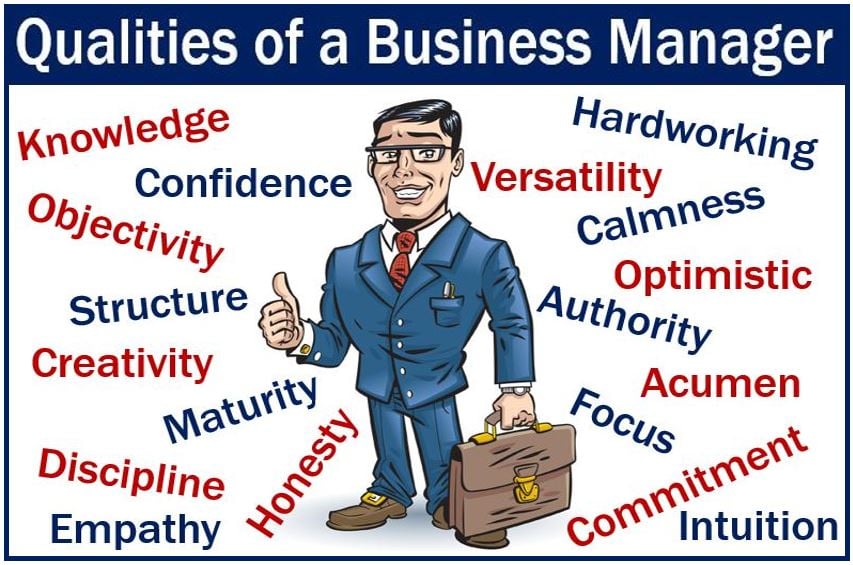Business manager – definition and meaning
A Business Manager is responsible for managing a company’s activities and its workers. Smaller companies depend on business managers to make sure that employees are working towards the aims of the business.
In large corporations, business managers report to top executives. In a small company, however, the manager will either own the business or report directly to the owner.
The term ‘business manager’ may also refer to a business agent – the person who manages the business affairs of a person such as an actor, athlete, author, or musician.
Different types of business managers
A business manager may oversee the day-to-day operations of a small or large organization. In large companies, they usually manage a department, such as production, sales, or marketing.
In small businesses, the person is usually in charge of the whole company.
Business managers frequently utilize digital tools to enhance operational efficiency and drive business innovation.
Office managers are responsible for organizing all the administrative activities. They are in charge of office equipment maintenance and keeping records up to date.
They must also make sure that all administrative processes work properly and efficiently. In other words, the office manager sees that everything in the office works well.
In small companies, office managers may work alone. However, in large organizations, they will supervise a team of employees.
According to Cambridge Dictionaries Online, a business manager is:
“a person in a company whose job is to manage one of its departments or areas of activity,” or “A person who manages the financial activities of an organization.”

Business manager – fast-food restaurants
A business manager of a fast-food restaurant has to provide motivational leadership to the team. The manager must also ensure customers are happy and that the business is financially healthy.
According to fast-food giant McDonald’s:
“The Business Manager is also responsible for making all of the major decision associated with running the restaurant, from recruitment to energy efficiency.”
“They also work at building strong and mutually beneficial relationships with the local community. Typically a Business Manager will manage a team of 80 employees.”
Business manager’s job description and duties
Business managers hire, train, and evaluate new employees. They usually have to make sure that the department or company is going in the right direction.
Above all, they must make sure the company or department meets its financial goals.
They also develop and implement budgets and prepare reports which they present to senior management. Business managers must make sure their department adheres to company policies.
They see that all employees have the necessary resources to complete their tasks. They are also responsible for the safety of workers.
Duties vary, depending on the size of the organization. In large companies, their duties depend on the department where they work.
Business managers in the tech industry often engage with product development teams to align technological innovations with market demands.
Experts say the most important task of business managers is managing cash flow.
School business manager
A school business manager, SBM), or bursar, is a senior member of non-teaching staff.
Bursars bring specialist expertise to a range of support functions. They liaise with external partners to secure additional financing for the school and looking after health and safety.
They also manage budgets, premises and project management, and negotiate contracts.
A school business manager must ensure that the environment of the school is encouraging pupils to maximize their potential
“As a member of the School Leadership team the roles and responsibilities of SBMs are incredibly diverse and developing, but fundamentally it’s about allowing head teachers to concentrate on what they do best.”
Business manager qualifications
Small companies may hire business managers solely because of their experience. Larger organizations, however, will require the candidate to have formal training.
A bachelor’s degree, preferably in business administration, is the minimum requirement for large corporations.
There are different types of business managers. They may work in human resources, retail, production, sales, marketing, and facilities. They should have qualifications and experience in their specialist field.
The US Bureau of Labor Statistics says most business management professionals must have degrees. Many will have graduated from business schools.
Business managers must have good communications skills because they deal with all levels in an organization. They talk to unskilled part-time workers as well as the company’s CEO. CEO stands for Chief Executive Officer.
Video – What is a Business Manager?
This video, from our sister channel on YouTube – Marketing Business Network, explains what a ‘Business Manager’ is using simple and easy-to-understand language and examples.

